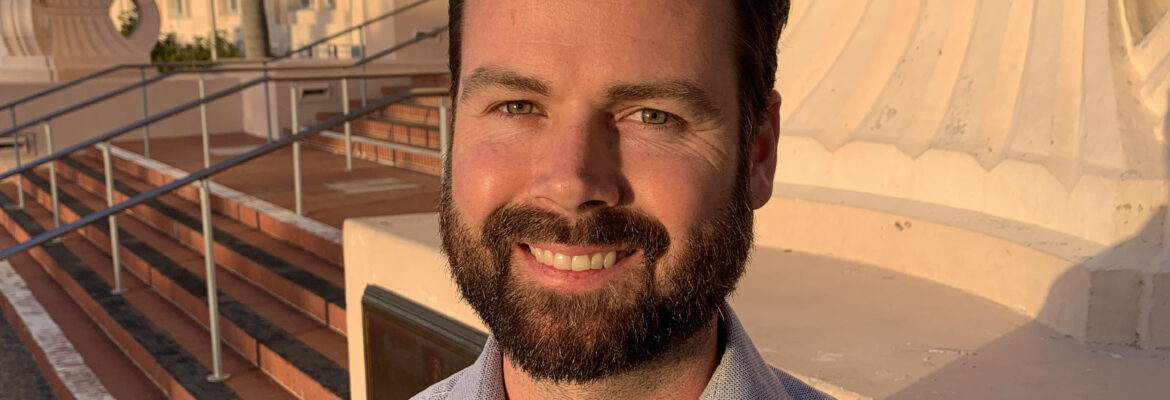Citizens Coordinate for Century III (C-3) is proud to announce its 2021 Board of Directors and new initiatives to celebrate its 60th anniversary, honor its six decades of advocacy for better San Diego planning and bring C-3’s education and advocacy efforts to new audiences and communities.
New members of the C-3 Board of Directors in 2021 include Suzanne Lawrence, Trish Boaz, Zach Plopper, Elizabeth Ocampo Vivero, Francesca Redetzke and Jon Schmid. Returning directors include Susan Baldwin, Angela Landsberg, Megan Gamwell, Suchitra Lukes, Denise Price, Kim Nadel and Ryan Karlsgodt. For details on C-3 leadership, directors and their backgrounds, click here.
Taking over as President of C-3 in 2021 is Ryan Karlsgodt, a native San Diegan who worked in the Administration of President Barack Obama. Ryan was an associate in the White House Office of Presidential Personnel before becoming an appointee at the U.S. Agency for International Development, where he worked on integrating climate change mitigation and adaptation in U.S. foreign aid. He is currently a senior associate at Strategies 360, a full-service communications and public relations firm that recently opened an office in San Diego. From 2017 to 2020, Ryan was a research analyst at Unite Here! Local 30, San Diego’s hotel and hospitality workers’ union.
In response to both the pandemic and changes in the ways San Diegans learn about planning issues and current events, C-3 is announcing the launch of a podcast, The Finest City. The podcast will explore the history of planning in San Diego, including C-3’s rich history of advocacy, as well as current issues affecting the design and livability of San Diego communities. Launching on April 2, The Finest City will begin with topical interviews of San Diego decision makers, activists, planners and others, as well as interviews of C-3 alumni and historians reflecting on the organization’s six decades affecting San Diego planning.
C-3 is also launching an ambitious, collaborative regional assessment project in partnership with the Local Government Commission. In 2020, C-3 established a new framework for its education, empowerment and advocacy work by forming six Knowledge Action Networks (KANs) across the region:
- Bi-National Border
- Mesas, Valleys and Canyons
- Urban Core
- Back Country
- Coastline and Wetlands
- San Diego Bay
The KANs represent a new, more integrative approach to C-3’s historical standing committees focused on San Diego planning issues. They are a place for knowledge-sharing amongst members on pertinent issues in their region, co-learning about best practices in planning and design and a wellspring of grassroots coalitions that will be equipped to fight for more livable communities in the region. Particular attention will be paid to underserved and environmental justice communities that have borne the brunt of poor planning and a historic lack of investment.
In April, C-3 will begin an intensive effort to fill the KANs with regional thought leaders, community groups and advocates, perform a deep analysis of barriers to livable communities in each KAN and produce recommendations for improving communities across the San Diego region. Each KAN will also produce a public “Civic Conversation” event focusing on their sub-region. C-3 is currently seeking additional partners, KAN members and sponsors for this effort.
C-3 is also celebrating its 60th Anniversary in 2021 with the release of an Oral History project including interviews of C-3 history makers and a digital timeline of C-3 history. A compendium of C-3 board members from the past 60 years, broken down by area of expertise, can be found on the C-3 website. C-3’s signature Breakfast Dialogues will be restarted soon, beginning virtually.
About Citizens Coordinate for Century III
Founded in 1961, Citizens Coordinate for Century III is dedicated to preserving and improving our region’s built and natural environments. Our objective is to influence critical policy, planning and design through education, empowerment and advocacy. As our co-founder, visionary architect Lloyd Ruocco, put it, “How can we make a City that is fit to live in?” Ruocco’s vision was to bring together our region’s most creative minds from the arts, sciences, academia and government to share ideas, learn new perspectives and build fellowship around the idea of creating livable communities.

